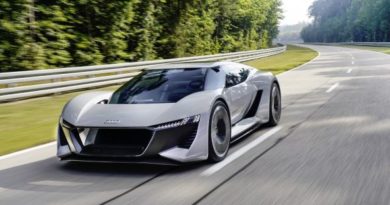Volvo-Eicher Joins the League of Zero-Emission Vehicle Manufacturers

VE Commercial Vehicles (VECV), a joint venture of Volvo Group India Pvt. Ltd and Eicher Motors Ltd, recently announced their plans for developing a complete range of electric vehicles, which will primarily fill the gap in public transit.
“VE is developing a new line of products, including a complete range of electric vehicles for public transportation,” Eicher Motors CEO Siddhartha Lal said. In a message to shareholders in the company’s annual report for 2017-18, Lal said that besides electric vehicles the company will also invest in the development of a varied line of products which will include light and heavy-duty buses for African and Middle-Eastern markets.
The company has already committed ₹500 crore towards the development of the new line and expansion of the product line of VECV for the financial year. Volvo had previously announced plans for introducing electric vehicles in the Indian market. Speaking about the development budget for 2018-19, Lal said: “We plan to invest ₹ 500 crore in VECV towards new product development and capacity enhancement.” thanks to their record for unconventional yet successful picks for investment, investors in the firm will hope that Eicher has got this right too. The firm, which made its fortunes on the Royal Enfield motorcycles, a product as far removed from electric vehicles as possible, will be hoping this move keeps them on the fast growth track.
The company will drive in an affordable range of air-conditioned buses to cater to public transit and has already commenced operations of its Skyline Pro Electric buses in Kolkata. At Iamrenew, we have repeatedly stressed on the need for public transport, especially buses, over private , especially in India’s fast growing cities, both metros and smaller emerging cities.
“We plan to have a complete range of electric mobility solutions for public transportation, offering world-class quality and comfort. We are also developing an affordable air-conditioned range of buses aimed at bringing superior comfort to public transit,” Lal said.
VECV, which recorded a 12.5% record growth in sales last year are also looking into segments like construction, mining and e-commerce. In India, VECV has a strong 88% market share in the high performance trucks segment, and is focused on targeting mining segments besides quarrying, road construction, and irrigation to drive growth.
The annual report mentions that the company is preparing to introduce the BS-VI range of trucks and buses in the domestic market much before the April 1, 2020 deadline. “We will have them in the market ahead of the April 1, 2020 deadline,” Lal said. That’s around the time India should have a decent EV charging network in place too, a must for a large public transport option like buses. The bus market is likely to see some serious competition, especially China based manufacturers, which have already achieved economies of scale and market acceptance in cities across China.
Recently, Volvo set a 2025 deadline for their recycling initiative, through which they aim that by 2025, 25 percent of plastic used in the manufacturing of their new car models will be sourced from recycled fishing nets, old car dashboards, bottles.




